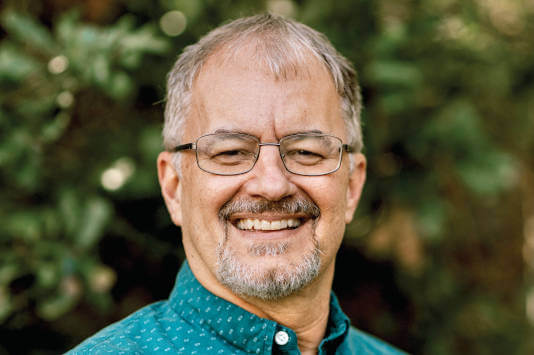Near the end of the film Jesus Revolution, Pastor Chuck Smith gives his young disciple Greg Laurie the keys to a church and challenges him to launch a new congregation. When Laurie expresses his lack of confidence, Smith says: “God has a long history of using flawed people.”
Those words certainly apply to the Jesus Movement, the spiritual revival that started in California when a long-haired hippie named Lonnie Frisbee showed up on Smith’s doorstep in 1968. The movement brought hundreds of thousands of people to Christ. Jesus Revolution (now streaming) portrays Frisbee’s early days as an evangelist, but there wasn’t enough screen time to unpack his complicated life.
The film shows Frisbee baptizing new converts in the Pacific Ocean, preaching on a college campus and sharing his testimony on Kathryn Kuhlman’s TV show. But there are hints of a darker side: His relationship with his wife gets testy, he has conflicts with Smith after the pastor corrects him about his youthful arrogance, and he eventually parts ways with Smith.
I’m glad the film didn’t delve into all of Frisbee’s problems. Movies can only give us a limited view of reality. But the truth is that Frisbee was a tormented soul who suffered unimaginable rejection and abuse—and his brokenness ended his life prematurely.
After the outbreak of revival at Calvary Chapel in Costa Mesa, California, Frisbee went through a divorce, fell into sexual sin, was ostracized by several ministries and then repented and returned to the Lord. But somewhere along the way he contracted HIV. He died from AIDS in 1993 at age 43.
To discover the untold story of Frisbee’s darker years we can turn to one of his best friends, John Ruttkay, who met Frisbee in 1979. In a detailed video, Ruttkay shares portions of Frisbee’s autobiography, Not by Might, Nor by Power, along with more than a decade of first-hand memories of ministering with him.
Frisbee wrote that his natural father beat him and then abandoned him. His stepfather rejected him. Then a male babysitter molested him when he was eight. Frisbee called the babysitter “a dark evangelist sent by demonic forces to ruin my life.”
The inner torment plunged Frisbee into the drug scene in San Francisco, as well as the gay underground. But then he found Jesus and immediately began allowing the Holy Spirit to use him during the early years of the Jesus Movement. Yet because there was little counseling available for victims of abuse in those days, Frisbee spiraled downward.
Frisbee began to become bitter. He felt rejected by Chuck Smith, then by some pastors in Florida and then by more pastors when he returned to California. Even Ruttkay lost contact with Frisbee in the early 1990s. Then, in 1992, Frisbee tracked him down and admitted to his friend that he had contracted HIV.
Frisbee was emaciated and going blind. Yet he told Ruttkay that he had repented for his sins and that he had gone to various people to ask for forgiveness.
Frisbee’s struggle created a quandary for Christian leaders in those days. They couldn’t just excuse his behavior, but they didn’t know how to help him—so Frisbee felt like an outcast. Yet he never justified his actions. Frisbee wrote in his book: “God is clear in the Bible that the wages of sin is death … I am totally forgiven by my Lord, but I am also paying the consequences of my sin even right now.”
Frisbee was also outspoken at the end of his life about homosexuality. He wrote: “Some not only embrace the lifestyle, but actively, willingly and creatively attempt to promote the gay agenda. … Right now, Satan is attempting to sell homosexuality to the whole world, not just America. He wants to destroy Christianity, the family unit and really to destroy mankind.”
Yet Frisbee ended his comments on a merciful note: “I’m saying all this without wanting to condemn anyone, but to speak the truth in love. I am saying: Turn to Jesus, because He is the only One who can deliver you.”
Those are some of Frisbee’s last words, and they sound like a prophecy for our times. Like Samson in the Bible, Frisbee had deep flaws and internal conflicts, yet he pointed many people to God.
Frisbee’s tormented life is both a tragedy and an inspiration. Through Jesus Revolution, this man’s story is reminding a new generation about a Savior who can forgive and use anybody.
J. Lee Grady was editor of Charisma for 11 years and now serves as senior contributing editor. He directs the Mordecai Project (themordecaiproject.org), an international ministry that protects women and girls from gender-based violence. His latest books are Follow Me and Let’s Go Deeper (Charisma House).















































